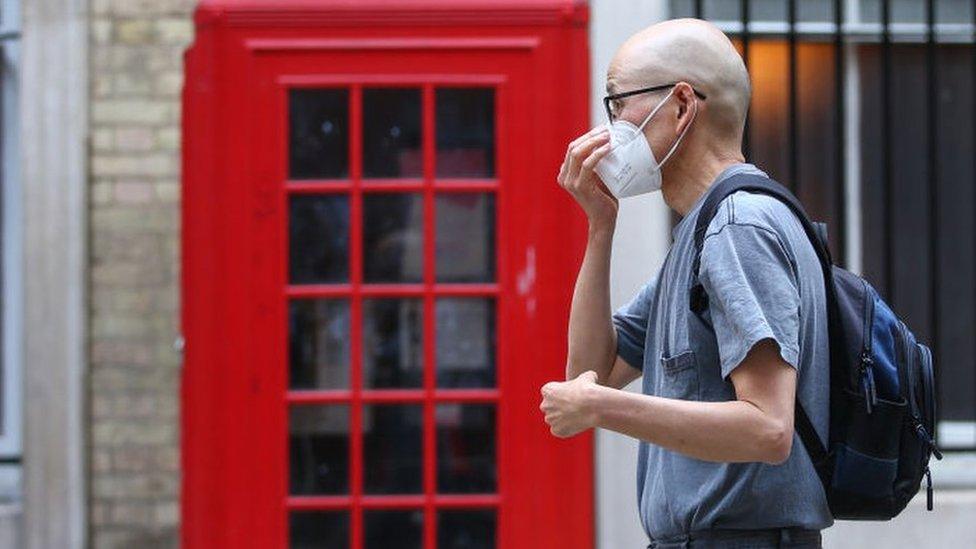Covid-19: How much has it cost?
- Published
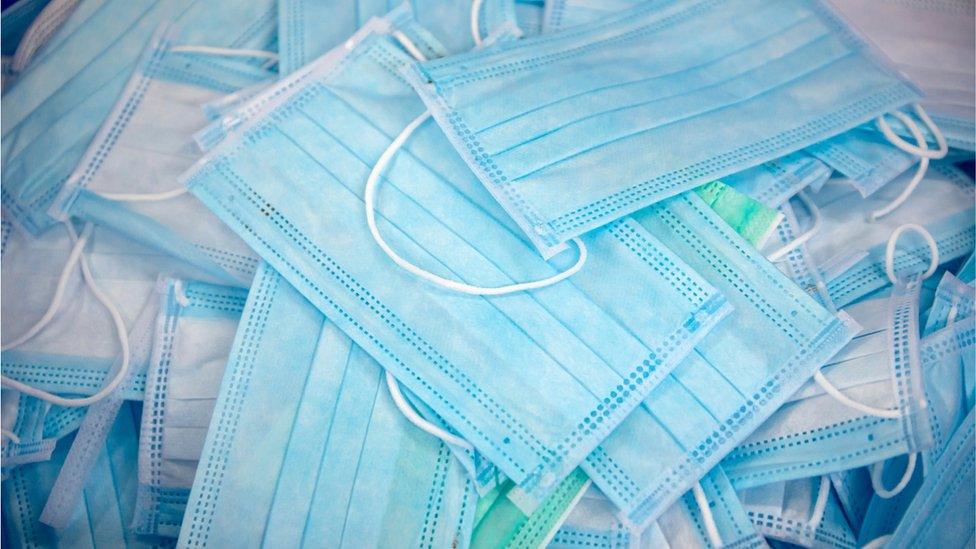
Second drafts of the history of Covid-19 are now being published, showing the harm done to good government, and the cost in government spending. Estimates of the total bill top £400bn, or more than £6,000 per head.
Across the splurge of money, some was effectively spent and some led to spectacular waste.
The UK's main spending watchdog has taken a close look at £13.1bn procurement of Personal Protective Equipment (PPE). It found the fast-track access to contracts, for those with good connections to government, saw billions spent without safeguards and much of the PPE supply being unusable. So far, the clawback of fraud is a tiny fraction of what the UK government fears.
When the full story comes to be written of Covid-19, it will have numerous chapters about love, loss, separation and sacrifice: of the commitment of health and social carers: of vital time and unknowable opportunities lost in education: and of an unprecedented and extraordinary level of social control.
The second draft of that history is already being written. An important contribution by 41 scholarly observers, external of government was published on Tuesday by the academic forum called 'UK in a Changing Europe'.
They reflect on the way Covid compounded Brexit's disruption to British government, while Boris Johnson's cavalier approach to leadership and to constitutional norms puts stresses and strains on all of its institutions.
They note that the UK has a political rather than a legal constitution, and the politics are vulnerable to radical changes and a disruptive leadership team which chooses not to see unintended and unwelcome consequences. A recurring theme is the lack of scrutiny and poor accountability.
Furlough figures
We're also seeing more information being published that will feed not just chapters but books on the history of Covid-19 about the ways in which money has been blown in such spectacular style. It was a vast pyrotechnic display of borrowed moola such as we'll surely never see repeated.
Much of it, in the UK, as with other countries, was spent without apparent constraint. "Whatever it takes," said the chancellor, Rishi Sunak.
UK health procurement rose from £99bn to £142bn in the first year, according to Treasury figures.
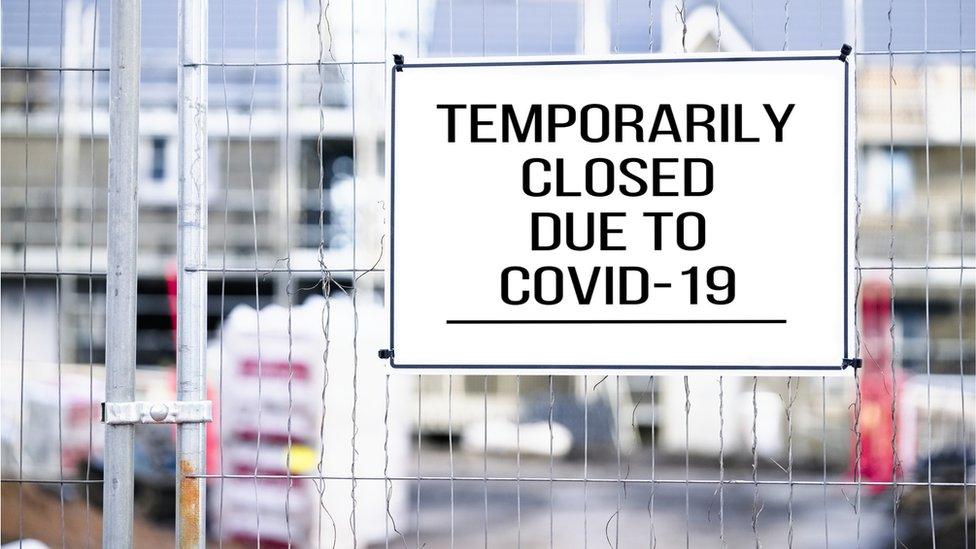
A study of the estimated costs, published by the House of Commons Library on Tuesday, shows that £43bn one-year rise is nowhere close to the full cost of treating Covid.
As other health spending was reined in, the Library authors retrieve a figure from the National Audit Office pointing to health and social care spending on the pandemic running to an estimated total of £75bn.
While the Covid vaccine programme has been deemed a success, and continues to cost billions, less effective was NHS Test and Trace, with an estimated cost of £37bn.
Furlough - or the Coronavirus Job Retention Scheme, to give its Sunday name - cost a staggering £70bn. It delivered what was intended, in keeping people close to their jobs and preparing the labour market for a strong recovery.
That was part of an estimated £122bn put into a form of reverse taxation by HM Revenue and Customs, also including the self-employed income support scheme, which was criticised for the limitations of its targeting.
Whitehall's business department, along with the Treasury, pushed £103bn into loans and grants to help keep businesses afloat.
Transport is estimated to have cost nearly £20bn, much of that in subsidies to rail and train operators.
Big numbers
The fiscal year 2020-21 was the first one in which government spending in the UK surpassed a trillion pounds, reaching £1096bn. That was a one-year increase of 23.5%.
This month, the Office for Budget Responsibility (OBR) estimated that the total cost of "pandemic-related support measures" would total £311bn. That, at least, is a significant decline on its estimate a year ago of £346bn.
Of its new figure, £229bn was spent in 2020-21, £78bn has been spent on Covid during the financial year that is soon to end, and it expects to see only £1bn in the year starting next week, with similar amounts or less in the years to follow.
The National Audit Office (NAO) makes a different calculation that runs to £368bn in total, at least £259bn of it spent by last September.
For the biggest estimate, the International Monetary Fund comes in at £407bn by last September, in direct spending and in taxes and duties that the government did not collect.
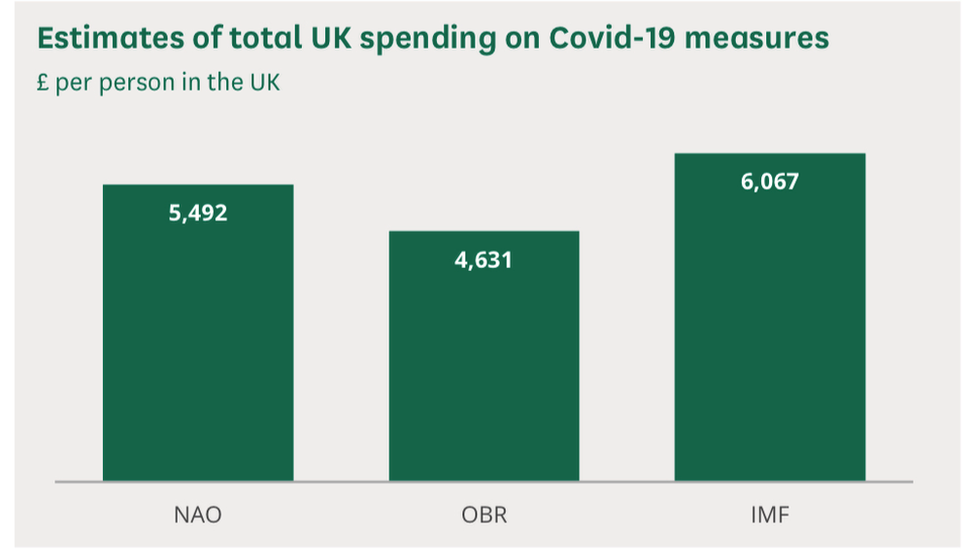
Please excuse the big numbers. They probably begin to lose their impact. So perhaps it helps to think of it in terms of spend per person.
The Commons Library report contrasts these three estimates: £5,492 per person in the UK on the NAO reckoning: £4,631 from the OBR: and for the IMF, it's £6,067 per head.
VIP lane
With that kind of money being splurged, it comes as no surprise to find some of it going astray. And even a small proportion of it doing so can mean a very large amount of money.
The National Audit Office has warned before about the poor controls on fraudulent applications for business loans.
In December, it reported: "Compared with the scale of [the government's] "most likely" estimate of £4.9bn of fraudulent loans, both the £32m additional budget for counter-fraud operations, and its target to recover at least £6m of fraudulent loans from organised crime, are inadequate."
Today, the UK's main spending watchdog sinks its teeth into the procurement of PPE - personal protective equipment.
Its new report recognises that there was a huge rush and pressure to acquire the PPE necessary in the early weeks and months of the pandemic. Special measures were required. Conventional procurement routes, competing with other countries' requirements, were not sufficient.
Parallel tracks
A "VIP lane" was opened up, in which "government officials, ministers' offices, members of Parliament, senior NHS staff and other health professionals" could recommend companies that could help. Some of these companies had no track record at all.
This story is well known. There's no secret to it. But that shouldn't blind us to the fact that it would be hard to design a procurement process more vulnerable to cronyism, political corruption and chancers.
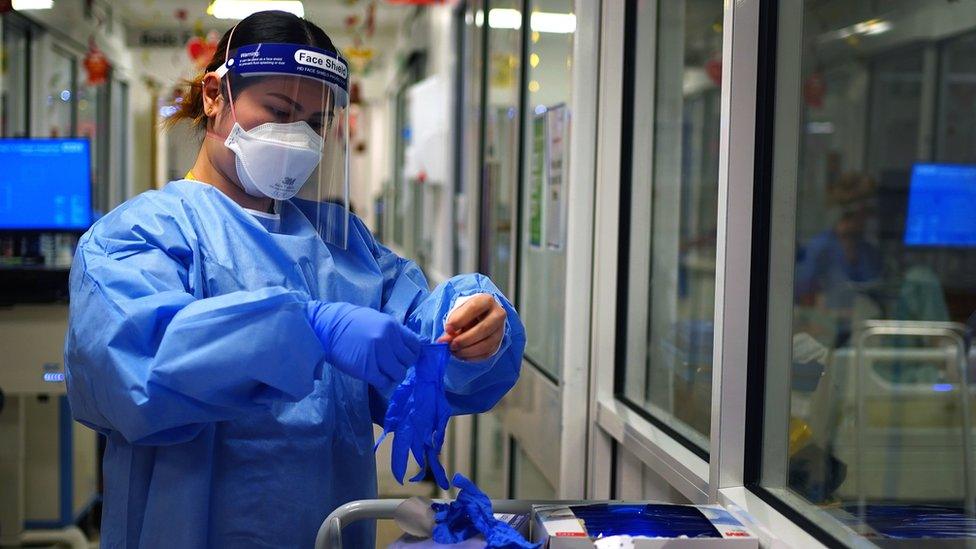
And sure enough, the NAO explains that some of those in this "parallel" procurement track - of which the VIP lane was one element - were demanding and being given up-front payments. Until they were stopped, £2.5bn was paid out that way.
The auditors detail how an eight-stage checking process, aimed at sifting bidders for contracts, was introduced in May 2020, three months after this process had begun.
There were 115 contracts awarded to 51 "VIP lane" suppliers. The contracts were worth £3.8bn, and were supposed to deliver 7.8 billion items of PPE. Of those 115 contracts, 46 did not go through the due diligence process.
Front-line health
These staggering figures keep coming, so please excuse me for sharing more of them.
One in nine of the PPE items ordered through the parallel supply chain was not suitable for front-line health services. More than half of those in the VIP lane supplied such items.
Some £1.8bn was spent on 1.1 billion items, such as face visors, that are too complex and time-consuming for health workers to assemble.
One billion items are not suitable for use in any way, costing £439m, almost all of them from the parallel procurement track, and quarter of VIP lane suppliers contributed to that.
Inadequate paperwork to check the origin of 1.4 billion further items, at a cost of £646m, means it still cannot be used.
The Department of Health and Social Security in Whitehall "is managing 176 contracts where it believes it may not achieve full value for money, with an estimated £2.7 bn at risk". Of those, 57 were awarded through the VIP lane, and £1.4bn remains at risk.
Anti-fraud
It goes on, and on. By last November, £737m had been spent on storage of PPE equipment, much of it in shipping containers which carried a high penalty cost - £436m - for failing to clear them promptly.
And how is the health department getting on with tackling fraud? It reckons fraud could be between 0.5% and 5% of the £13.1bn spent on nearly 38 billion items of PPE.
So far, the NAO reports it has prevented £139m of fraud occurring and recovered £18m. So while fraud could come to £650m at the top end of the range, that anti-fraud effort so far has reached 0.012% of the total spend.
For those of us paying for all this through taxes for many years to come, it's not reassuring.
- Published12 January 2022
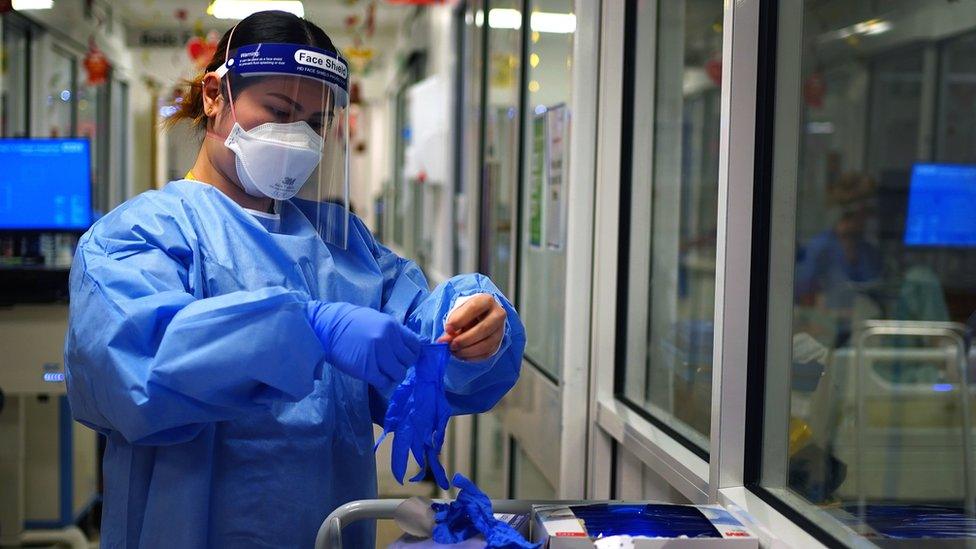
- Published25 July 2021
